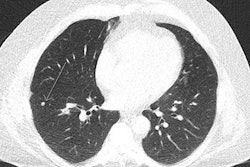Dear AuntMinnieEurope Member,
The notion of avoiding unnecessary CT scans is appealing to everybody, so it's no surprise that an article published this week by Lancet Neurology has generated huge interest.
An international research group found that a blood test that detects biomarkers for brain injury can help reduce the need to refer patients for CT, but experts have voiced serious concern about the clinical relevance of the test. Find out why in the CT Community, or by clicking here.
CT lung cancer screening is another topic that tends to arouse great emotion and divide opinion. Doubts persist about the cost-effectiveness of screening, but new evidence could make many people think again. A team from Zurich aimed to clarify the impact of screening across a high-income population with a high smoking prevalence and found it can reduce lung cancer mortality by between 6% and 15%. Get the full story here.
In another new study, Dutch researchers looked at nearly 170,000 children who underwent one or more CT examinations between 1979 and 2012. They focused on the prevalence of leukemia and brain tumors, two of the more common malignancies caused by radiation exposure. What exactly did they find? Click here to learn more.
An important report was released last Thursday about how to address the backlog of imaging examinations in England. Urgent action is required to improve turnaround times and performance, noted the regulator. For our news report and to get the response of Dr. Nicola Strickland, president of the Royal College of Radiologists, click here.
Glioblastoma is the most common and aggressive primary brain tumor, accounting for more than 50% of all gliomas at a rate of 3.19 per 100,000 in the U.S., according to another Dutch group. They've discovered that PET scans with the radiotracer F-18 fluorothymidine can help determine which glioblastoma patients have the best chance for longer survival. Visit our Molecular Imaging Community, or click here.



















